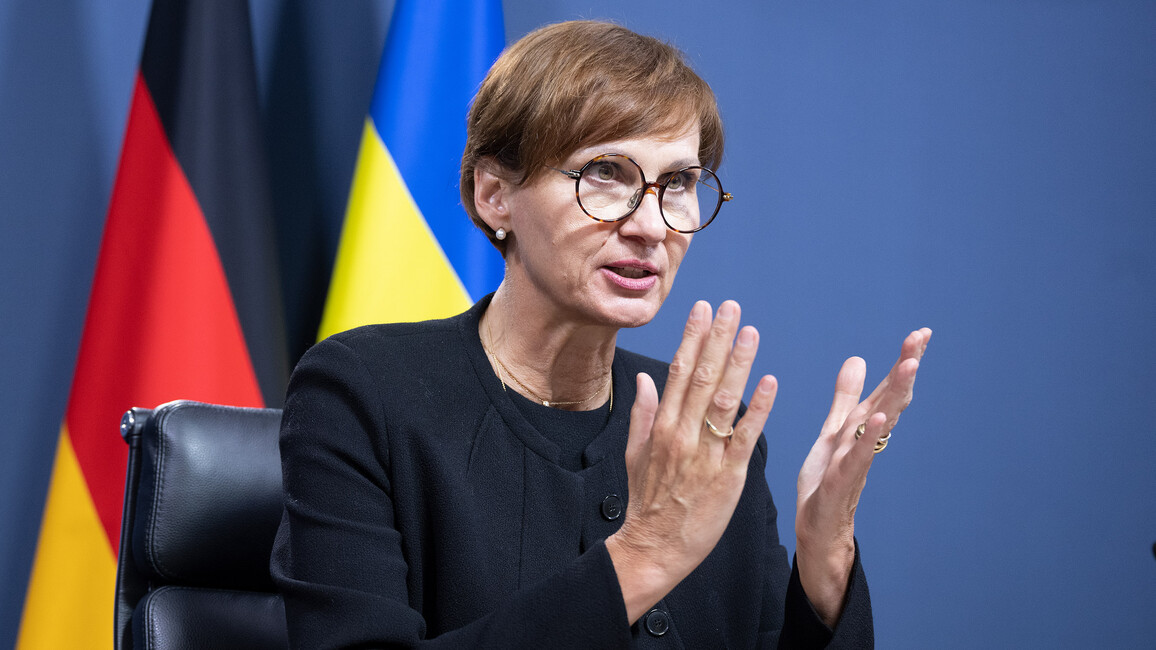Stark-Watzinger: We are expanding support for Ukrainian students : Date: , Theme: Press Release
The Federal Ministry of Education and Research (BMBF) is expanding support for students who have fled Ukraine together with the German Academic Exchange Service (DAAD).
BMBF provides roughly nine million euros for relevant programmes
The Federal Ministry of Education and Research (BMBF) is expanding support for students who have fled Ukraine together with the German Academic Exchange Service (DAAD). Two existing programmes are being strengthened to make it easier for refugees to enter higher education in Germany. In addition, two new programmes have been launched to support virtual study courses in Ukraine as well as virtual preparation for studies. The BMBF will provide roughly nine million euros for the programmes this year.
Federal Education Minister Bettina Stark-Watzinger explains:
"Students who have fled Ukraine need our support. This is why we are expanding the existing programmes. With the two new digital programmes, we are contributing to the continuation of teaching at Ukrainian universities for the first time. In addition, we support German universities in their efforts to offer existing courses in a virtual format to prepare refugee students for studies in Germany. This broad approach enables students and prospective students from Ukraine to quickly continue or start their university studies. We are thus providing for a certain degree of continuity and offering prospects for young people. I hope that the war will soon end so that they can return home."
DAAD President Prof. Dr. Joybrato Mukherjee adds:
"The individual programmes are major sources of support for Ukrainian students in Germany and universities in Ukraine. They are key elements of the support package for Ukraine which the DAAD proposed in March. It is important to secure the programmes in the medium term. We know from contacts with our partner organizations in Ukraine that continuity and assistance in maintaining virtual courses is also desirable beside support for students and researchers in Germany. We have taken this wish seriously with the two digitalization programmes which contribute to maintaining academic life in Ukraine and continued educational biographies of Ukrainian students in times of war."
Background
The four programmes in detail:
Expansion of DAAD refugee programmes
The DAAD’s refugee programmes offer support for the integration of Ukrainian refugees into higher education. With funding from the BMBF, the DAAD thereby enables German universities to step up their counselling and mentoring capacities and provision of language and subject-specific courses for students from Ukraine. The funded measures are open to Ukrainians and students from third countries who have come to Germany as a result of the war in Ukraine. The measures are being implemented under the programmes for refugees at universities launched in 2016, more specifically the Integra funding programme (preparation for admission to degree courses) and the Welcome (students helping refugees) and PROFI programmes (professional qualifications for academically qualified refugees).
National Academic Contact Point Ukraine
In mid April, the DAAD launched the website of the National Academic Contact Point Ukraine with BMBF support.
This website was targeted by the BMBF, the higher education and research ministers of the Länder and the Alliance of Science Organisations in their Lübeck Declaration and provides information on residence, admission to higher education, studies and research, and living in Germany. Information is available in German, English and Ukrainian. The website is meant to provide refugee students with orientation in Germany’s higher education system.
This platform also compiles and structures the various support offers that are available from Germany’s higher education and research community. It currently includes links to nearly 120 support programmes offered by academia; roughly 2000 enquiries from students, researchers and universities have been received since the website was launched.
Ukraine digital
The DAAD is supporting collaborations between German universities and Ukrainian partner institutions through the new BMBF-funded programme "Ukraine digital: Ensuring academic success in times of crisis". Joint projects will support Ukrainian higher education institutions in offering their study programmes in a virtual format and enabling students to continue or complete their studies at their home institution. The projects may include the award of scholarships for Ukrainian students who have fled within Ukraine or to Germany. Furthermore, Ukrainian researchers may be employed to help provide virtual study programmes.
Digital Campus special call
The Digital Campus special call provides short-term support for German universities wishing to offer existing preparatory programmes in a virtual format to refugee students from Ukraine or Ukrainian refugees interested in university studies. For example, funding is provided for the design of virtual courses to prepare prospective students for studies at a German university by introducing them to the language, subject matter and campus culture; self-assessment measures, for example to test language and subject-specific skills, are also eligible for funding. Digital Campus is a BMBF-funded collaborative project of DAAD, RWTH Aachen, TH Lübeck, g.a.s.t., Kiron Open Higher Education and the Goethe-Institut. Its aim is provide an internet portal which compiles the available digital offers and information regarding preparation and mentoring for international students.
Further information
www.daad.de/ukraine-digital
www.daad-ukraine.org
www.daad.de/Sonderausschreibung-Digitaler-Campus
